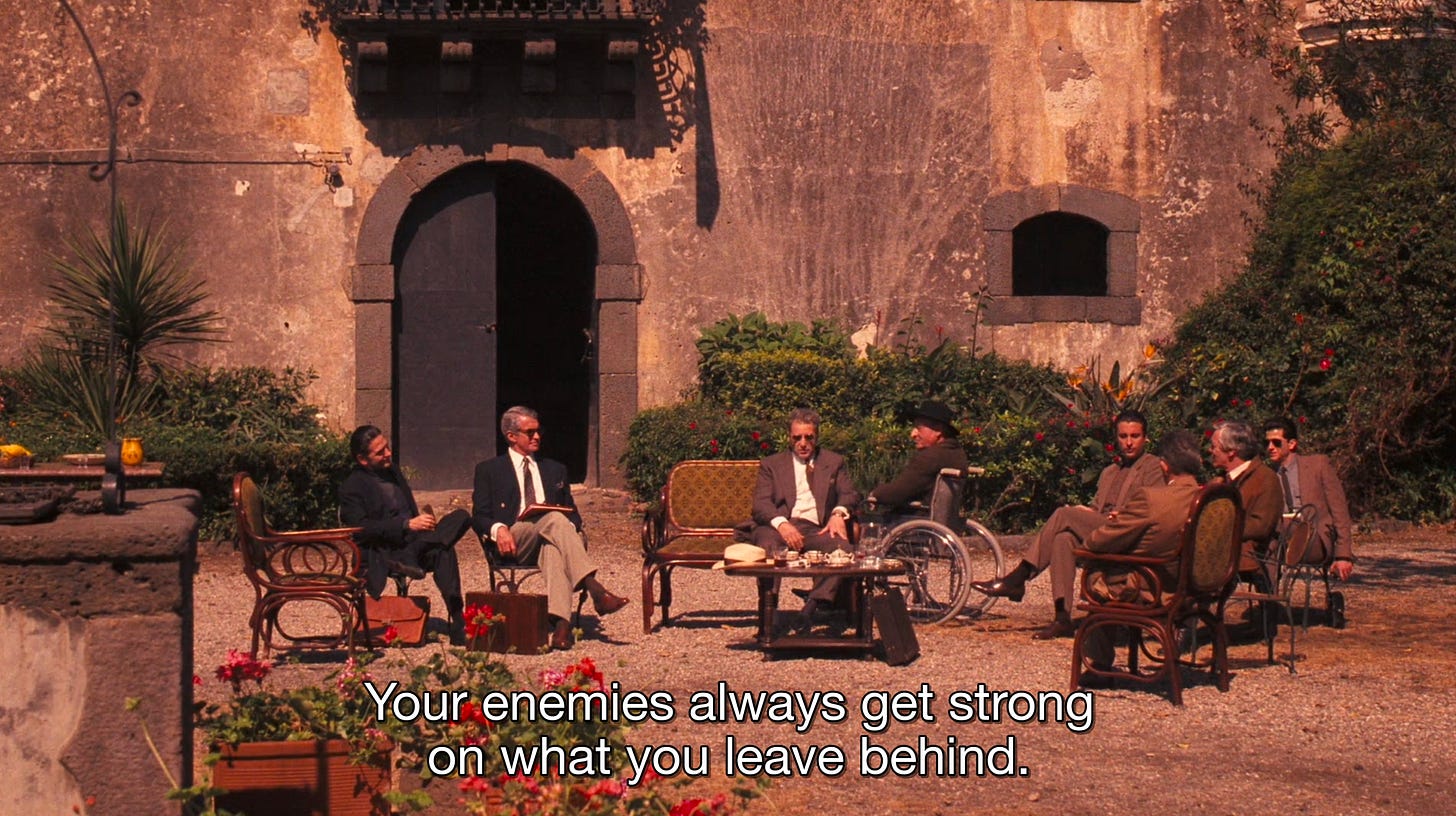Movement and determinism
> The moment man stops and resigns himself, he becomes subject to determinism. He is most enslaved when he thinks he is comfortably settled in freedom.
Truly God alters not what is in a people until they alter what is in themselves.1
You did not slay them, but God slew them, and thou threwest not when thou threwest, but God threw, that He might try the believers with a beautiful trial from Him.2
This beautiful trial, tension and contradiction. The opposition established here: each as acting, deity as sole actor. Much the same is explored by the Marquis de Sade, there often surfacing theological in his Juliette: “As our will always expresses itself in some movement, gesture, or impulse, God is consequently obliged to concur in what we will and sanction what at our will’s behest we do: God hence dwells in the parricide’s murdering arm, in the incendiary’s torch, in the whore’s cunt.” What are we to make of this? Nothing at all, rather that it be accepted as such: ultimately resolved in terms of metaphysics and not epistemology. This the nature of being, of becoming, in itself.
A brief history of dialectical logic: The first philosophy was born of spoken language, a game played for love of some invisible. The dialogue is a naturally dialectical form, but this gives way with the rise of writing. Thereafter the meaning of contradiction is altered: no longer literally to speak against, or rather that the speaking against now attains to a simultaneity. This contradiction compels a sorting, deciding, defeating. The syllogism thus a spatial structuring intended to order the universe. The heights of this in Hegel, a grand synthesis ultimately futile. His return to dialectic, however, is a necessary even if unsteady truce; there placed being over becoming, that jagged in its effort to return an original movement. This necessitated now as a conscious method where at the earliest philosophy, at the precipice represented by the Socratic dialogue—written but oral, turning point of the ages—was once an inevitable dialectic in the form of language as living activity. This against the dead ontology of his inscription.
What are we to do with contradiction? The living movement which was its meaning prior, which is our only return. This being the way of holding a tension, not as a thing external; not as something to be settled and then imposed upon the self but rather felt and moved through as such—there, hold yourself just so and follow. Taking up again our point of departure: that we are powerless to change ourselves; that we are granted this power only to the extent that we change ourselves. Either pole of this opposition is a threat to our freedom: that we cannot act, that we alone can act. The same tension here as wu-wei: while effortless action is grasped readily enough at the first level, it is nevertheless swallowed by a tension between effort and action in order and emphasis.
Take then the Jain tradition as a further falling short: in some respect we are certainly powerless, in some respect we are certainly powerful—and again, in some respect we are certainly powerful, in some respect we are certainly powerless. These two orders as a matter of emphasis, of meaning; to the extent that it occurs through language the whole is necessarily linear and sequential: this then that, that then this, position and negation. And yet we lack any word by which to simultaneously assert a thing and its opposite—or we lack such a word but for that the Jains gave: avaktavya, inexpressible.
This is the truth of that contradiction contained in the Quran, contained alike in our hearts, contained in all language of effort and action, of desire and obedience, and this further the same shape which recurs ever as the practical question of free will: that we fall short so often in our encounter with that vast mass of tangled habit which is our earthly form, that we war with this to wipe the mud from our face, that there is no single movement but suicide (and that a false promise) which can assert the whole in an instant. This twining dance of devotion and despair is decided only at death.
13:11
8:17


